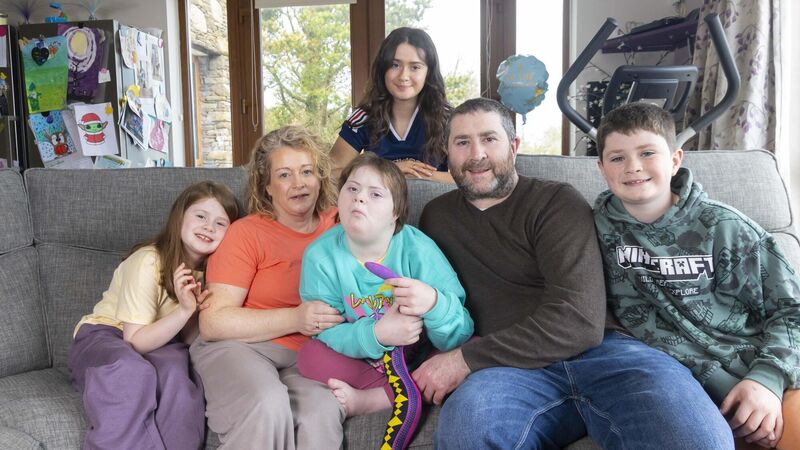Lack of awareness about Down Syndrome related arthritis

The Ó Beaglaoi Family from An Rinn, Co Waterford, parents Pádraig and Cáit, with daughters Líle Céití, Aoileann and Ciana with son Maidhc. Picture: Patrick Browne
A Waterford teenager waited four “scary” years for an arthritis diagnosis found among children with Down syndrome, her parents have said, as they called for urgent investment in better care.
Down syndrome associated arthritis affects one in 50 children, Irish research has found.












